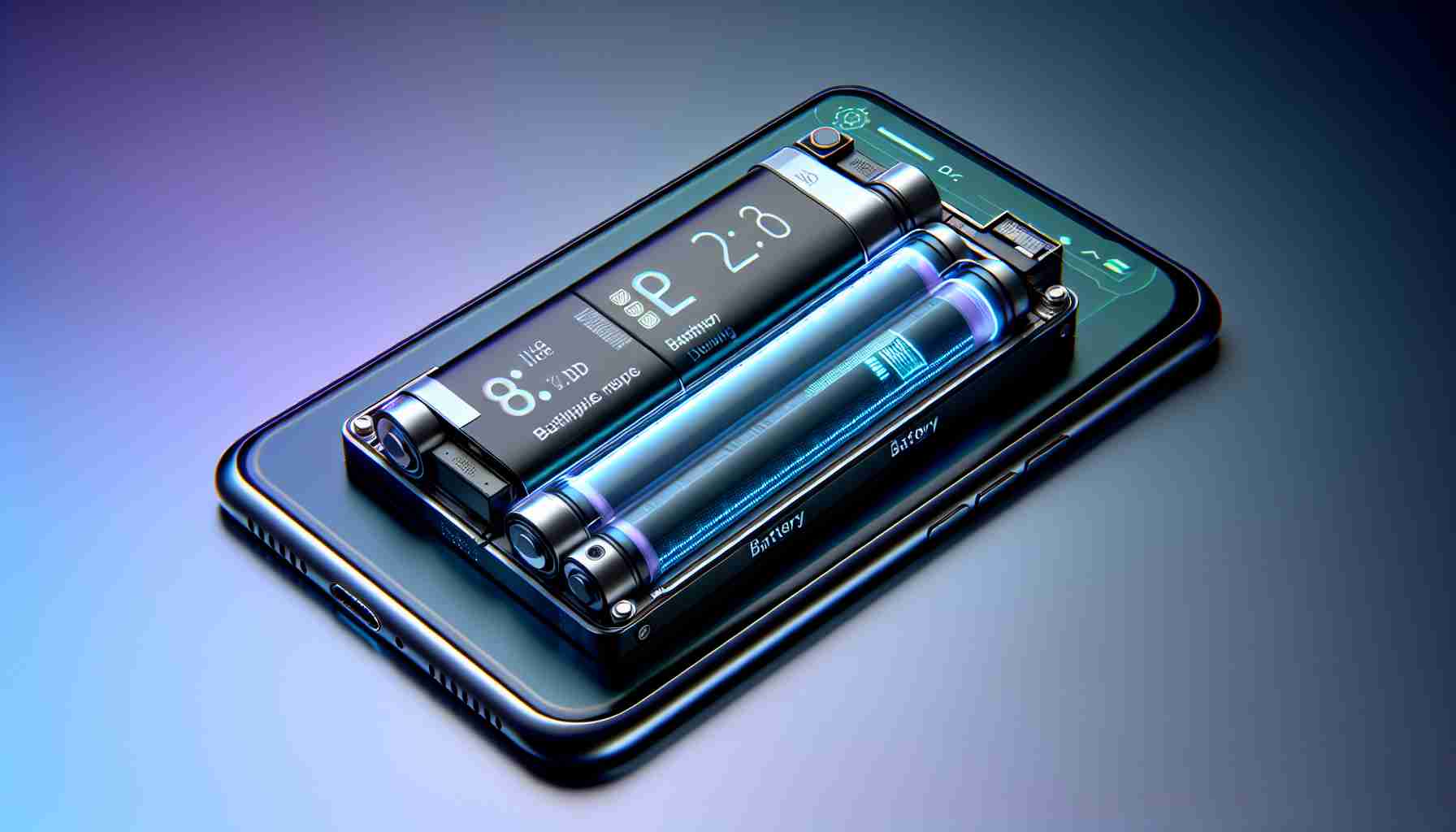In a world where smartphones have become an essential part of our lives, the demand for more efficient and long-lasting batteries is higher than ever. The convenience of a smartphone that can be fully charged in less than 40 minutes and remain operational for 50 years seems like a dream come true. However, this dream might soon become a reality as manufacturers race to develop groundbreaking battery technologies.
Traditional lithium-ion batteries, which currently power the majority of smartphones, have limitations in terms of charging speed and longevity. To overcome these challenges, researchers are exploring alternatives such as lithium sulphur and graphene batteries, which offer potentially longer lifetimes and use less rare elements. Chinese handset maker Honour has already made significant progress in this area, with their flagship Magic 6 smartphone utilizing silicon-carbon battery technology. This innovative battery can fully charge in less than 40 minutes, providing a competitive edge in the market.
Leading smartphone manufacturers like Samsung and Apple are also investing heavily in revolutionary battery technologies. Samsung aims to launch a solid-state battery by 2027, which promises to store more energy, charge faster, and offer greater safety. Apple, on the other hand, plans to introduce its own battery technology by 2025. These advancements would not only enhance the overall performance of mobile devices but also reduce dependency on specific suppliers.
While these advancements in battery technology are highly impressive, one Chinese startup, Betavolt Technology, has taken innovation to a whole new level. The Beijing-based company unveiled a nuclear battery that can power a smartphone for an astonishing 50 years without requiring recharging. By miniaturizing atomic energy and using nickel-63 isotopes, Betavolt Technology has achieved a breakthrough that could revolutionize the smartphone industry. Although still in the pilot testing stage, this technology has the potential to completely redefine the concept of smartphone battery life.
The advancements in battery technology are not only driven by consumer demand but also by sustainability concerns. Legislators in the European Union have approved new rules to make batteries more durable and sustainable. These regulations aim to impose minimum levels of recycled content and raise the overall quality of batteries in the market.
As the world eagerly awaits the next generation of smartphones, it is clear that battery technology will play a crucial role in defining the future of these devices. While significant progress has been made, industry experts agree that there is still a long way to go before we see a smartphone with a two-week battery life. Nonetheless, with the current focus and investments in battery technology, we can be hopeful that this game-changing advancement is not too far away.
FAQ Section:
1. What are the limitations of traditional lithium-ion batteries?
Traditional lithium-ion batteries have limitations in terms of charging speed and longevity. They take a significant amount of time to fully charge and may not last as long as desired.
2. What alternatives are researchers exploring to overcome these limitations?
Researchers are exploring alternatives such as lithium sulphur and graphene batteries. These batteries offer potentially longer lifetimes and use fewer rare elements.
3. Which smartphone manufacturer has made significant progress in battery technology?
Chinese handset maker Honour has made significant progress in battery technology. Their flagship Magic 6 smartphone utilizes silicon-carbon battery technology, which can fully charge in less than 40 minutes.
4. Which leading smartphone manufacturers are investing in revolutionary battery technologies?
Leading smartphone manufacturers such as Samsung and Apple are investing heavily in revolutionary battery technologies. Samsung aims to launch a solid-state battery by 2027, while Apple plans to introduce its own battery technology by 2025.
5. How long can Betavolt Technology’s nuclear battery power a smartphone without recharging?
Betavolt Technology’s nuclear battery can power a smartphone for an astonishing 50 years without requiring recharging.
6. What sustainability concerns are driving advancements in battery technology?
Legislators in the European Union have approved new rules to make batteries more durable and sustainable. These regulations aim to impose minimum levels of recycled content and raise the overall quality of batteries in the market.
Definitions:
– Lithium-ion batteries: A type of rechargeable battery commonly used in electronic devices such as smartphones. They are known for their high energy density and long cycle life.
– Silicon-carbon battery technology: A battery technology that incorporates both silicon and carbon as key components. It offers faster charging times and potentially longer lifetimes compared to traditional lithium-ion batteries.
– Solid-state battery: A type of battery that replaces the liquid electrolyte in traditional lithium-ion batteries with a solid-state electrolyte. They promise higher energy density, faster charging, and improved safety.
– Nuclear battery: A battery that uses nuclear energy to generate power. In the case of Betavolt Technology, they miniaturize atomic energy and use nickel-63 isotopes to power the battery.
Suggested Related Links:
– Samsung Official Website
– Apple Official Website
The source of the article is from the blog macholevante.com
